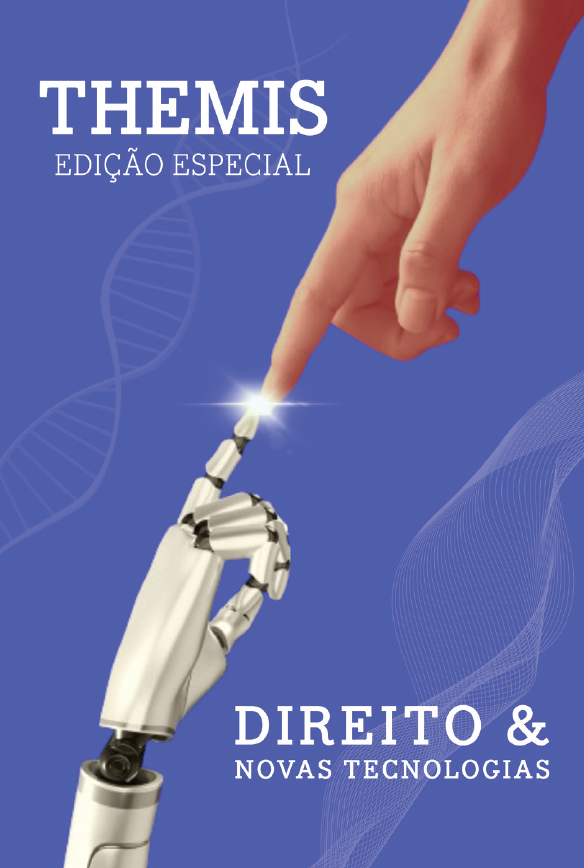JUSTIÇA ALGORÍTMICA E DIREITOS HUMANOS: ANÁLISE DOS LIMITES E POTENCIAIS DE UMA NOVA FORMA DE JULGAMENTO
ALGORITHMIC JUSTICE AND HUMAN RIGHTS:ANALYSIS OF THE LIMITS AND POTENTIALS OF A NEW FORM OF JUDGMENT
DOI:
https://doi.org/10.56256/themis.v23i1.1073Palavras-chave:
Justiça, Algoritmo, Direitos Humanos, Inteligência ArtificialResumo
Este artigo investiga a interface entre a justiça algorítmica e os direitos humanos, destacando os desafios éticos e jurídicos decorrentes do uso da inteligência artificial no sistema judiciário. A pesquisa justifica-se pela crescente adoção de tecnologias digitais nas decisões judiciais, o que suscita questões sobre transparência, imparcialidade e respeito aos direitos fundamentais. O objetivo central é analisar os limites e as possibilidades éticas e legais da justiça algorítmica, considerando seu impacto no sistema de justiça.
A metodologia utilizada é bibliográfica, com análise crítica de obras e estudos contemporâneos. O artigo estrutura-se em três seções: a primeira discute os fundamentos da justiça algorítmica e sua relação com os direitos humanos; a segunda explora os riscos dessa implementação, como a opacidade dos algoritmos, vieses e possíveis discriminações; e a terceira analisa os benefícios potenciais de uma justiça algorítmica ética, propondo soluções como auditorias e regulamentações para mitigar riscos.
Os resultados apontam que, embora a justiça algorítmica ofereça vantagens em termos de eficiência e acessibilidade, é crucial implementar medidas rigorosas para evitar desigualdades e assegurar o devido processo legal. Conclui-se que o estudo contribui para o debate ao propor uma perspectiva crítica e equilibrada sobre a adoção de tecnologias no sistema de justiça, destacando a necessidade de alinhar inovação tecnológica ao respeito pelos direitos humanos.
Downloads
Publicado
Como Citar
Edição
Seção
Licença
Copyright (c) 2025 Diego Alves da Silva

Este trabalho está licenciado sob uma licença Creative Commons Attribution-NonCommercial 4.0 International License.
- Todos os artigos são publicados sob a licença Creative Commons - Atribuição Não Comercial (CC BY-NC), permitindo que terceiros copiem, distribuam e adaptem o conteúdo, desde que seja dada a devida atribuição ao autor e à revista.
- No caso da licença CC BY-NC, o uso comercial dos artigos não é permitido.
















